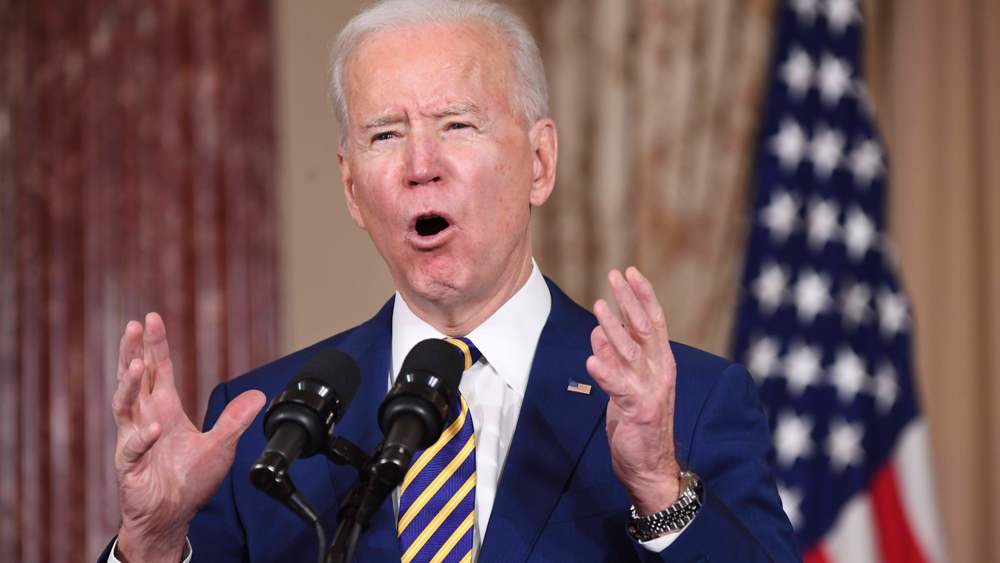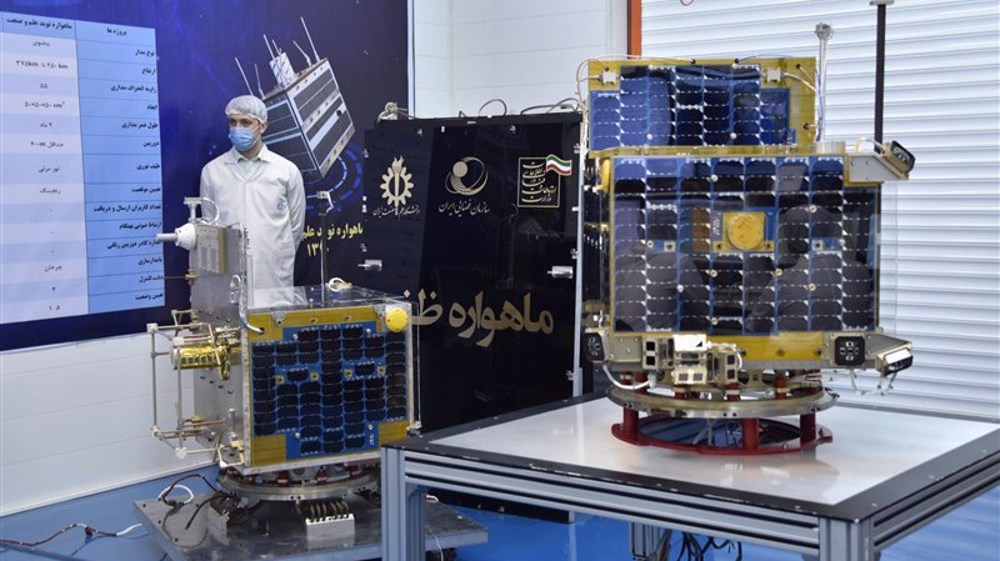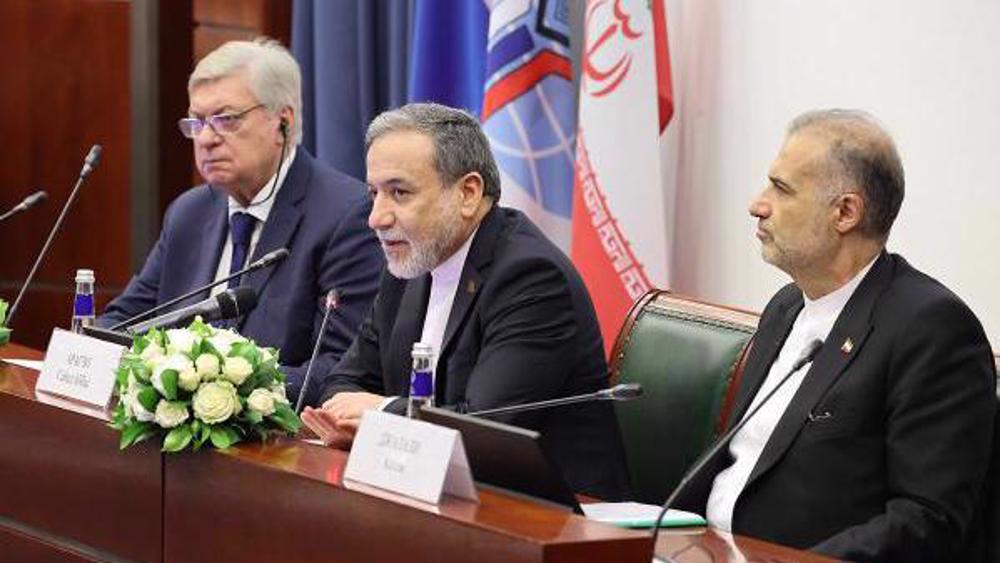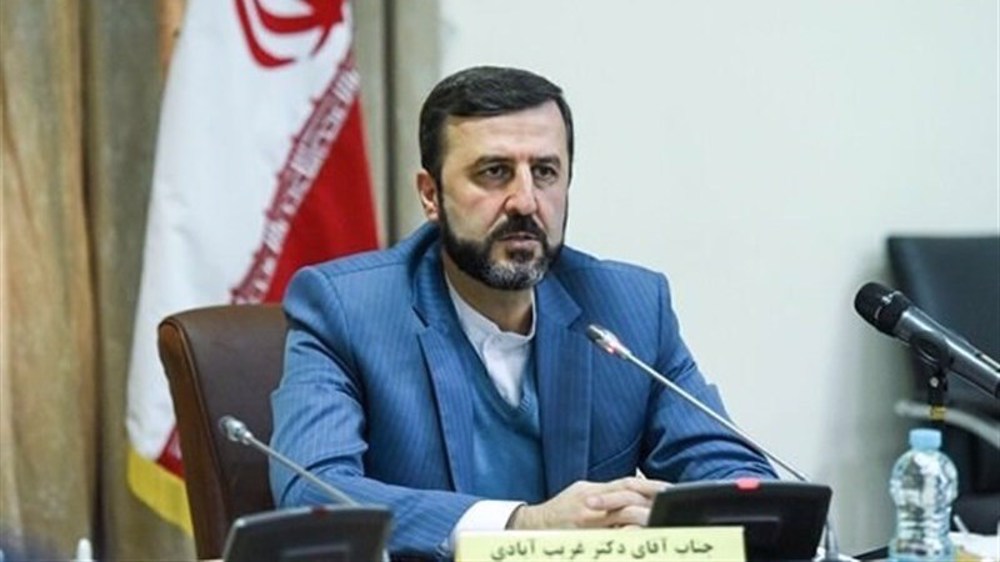Iran's February 21 deadline ‘wakeup call’ for Biden administration
Iran’s decision to end its voluntary implementation of the Additional Protocol to the nuclear Non-Proliferation Treaty (NPT) Safeguards Agreement should the other parties to the 2015 Iran nuclear agreement fail to honor their commitments by the deadline of February 21 is “a wake-up call” for the administration of US President Joe Biden, a political analyst and former US Senate candidate says.
Mark Dankof, who is also a broadcaster in San Antonio, Texas, made the remarks in an interview with Press TV on Monday, after Iran’s Foreign Ministry Spokesman Saeed Khatibzadeh said at a weekly press conference on the same day that the implementation of the Additional Protocol will be halted, unless the other parties to the nuclear deal, officially called the Joint Comprehensive Plan of Action (JCPAO), return to fulfilling their abandoned commitments.
“The February 21st deadline is indeed a legitimate wakeup call to the Biden administration in regard to the president’s stated intentions in the electoral campaign of 2020 to re-enter [the] JCPOA. This deadline will test whether or not Biden is serious about re-establishing American involvement in what the United States agreed to in this multilateral treaty, or will cave in to Israeli pressure on him,” Dankof said.
“Evidence of this pressure came on January 21st, the day after the president’s inauguration. A report appeared in the Times of Israel that an unnamed senior Israeli official was threatening to terminate its political and diplomatic relationship with the new administration if the United States re-entered JCPOA,” he added.
The analyst further noted that “the United States must demonstrate that it has the political will to rejoin JCPOA and honor its previous commitments.”
He also said Washington should indicate that it has the political will to resist Israeli Prime Minister Benjamin Netanyahu and the American Israel Public Affairs Committee (AIPAC) and “do what is in the best interest” of the other signatories of the nuclear deal.
Elsewhere in his remarks, Dankof said the Biden administration should welcome the Russian-Chinese initiative if it has any sincere commitment to the JCPOA and “restore all of the commitments in the original deal, without any changes or modifications.”
“Anything less will indicate that Biden and [US Secretary of State Anthony] Blinken are acquiescing to Israel and its domestic lobby in the United States, including AIPAC and the Democratic Majority for Israel,” he added.
The remarks came after Russia’s Deputy Foreign Minister Sergei Ryabkov said Russia and China have discussed an initiative by Beijing that aims to arrange for a multilateral meeting with the final goal of convincing the US to rejoin the nuclear deal with Iran.
The analyst further stressed that “the basis for honest dialogue is for Biden to state his unequivocal commitment to return the United States to the JCPOA”, and to immediately lift all the economic sanctions imposed on Iran by the administration of former US president Donald Trump.
The JCPOA was unilaterally ditched by Trump in May 2018, in pursuit of what he called the “maximum pressure” policy against the Islamic Republic through unilateral sanctions. Iran has denounced the policy as an act of “economic terrorism.”
The US withdrawal from the deal was met with worldwide criticism, and was followed, a year later, by Iran’s gradual reduction of its nuclear commitments. However, Tehran has repeatedly proclaimed that it will return to its nuclear obligations as soon as its interests under the JCPOA are met.
Iranian lawmakers overwhelmingly voted in favor of the Strategic Action Plan to Counter Sanctions in December, which tasked the Iranian administration with suspending more commitments under the JCPOA.
The law, among other things, tasked the Iranian administration to stop allowing inspections beyond the Safeguards Agreement, including the voluntary implementation of the Additional Protocol, if the other parties to the JCPOA failed to deliver on their commitments, normalize Iran’s banking relations and remove obstacles to Iran’s oil export.
VIDEO | Iran set to launch new domestically developed satellites into space
Araghchi says Iran satellite program ‘entirely peaceful’ ahead of triple launch
Venezuela's oil grab reveals Trump’s ‘supremacist, colonialist’ agenda: Analyst
VIDEO | Gaza’s remaining Christians gather in prayer amid war and loss
Iran FM: US pursuing 'law of jungle' over diplomacy
VIDEO | Gaza’s hospitals face collapse as shortages halt surgeries
At least 5 killed in terrorist attack on mosque in Syria’s Homs
Israeli airstrikes hit eastern, southern Lebanon in fresh ceasefire breach












 This makes it easy to access the Press TV website
This makes it easy to access the Press TV website